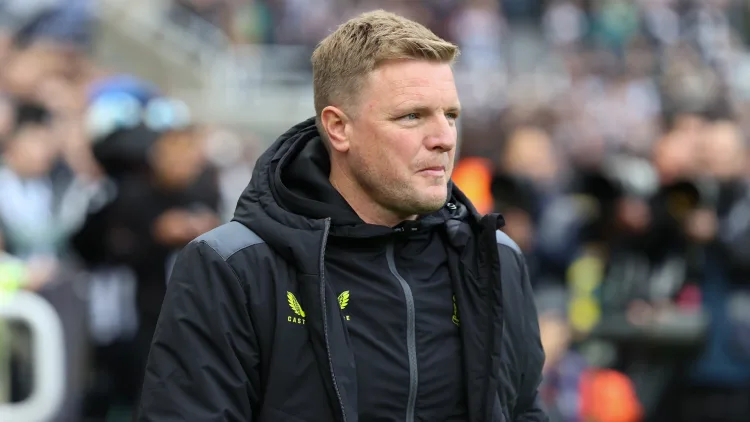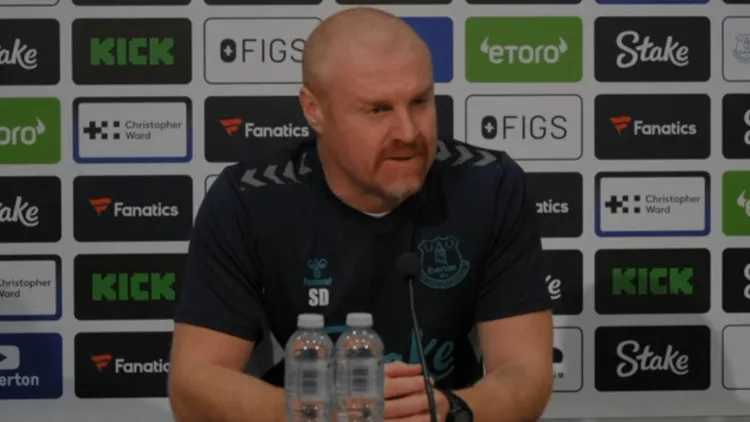-
News
- 22 hours ago
Premier League spending rules ruining game for everyone

We find ourselves in the midst of the January transfer window, a period that typically sees a frenzy of moves. Yet, strangely, there is an eerie silence, an unusual absence of the anticipated flurry of activities.
Lyon have been something of a surprise contender as they shrug off their relegation battle in Ligue 1, and this speaks volumes about the current landscape.
The influence of Financial Fair Play and the profit and sustainability regulations of the Premier League has constrained clubs, which previously indulged in lavish spending, particularly over the summer when it was nothing short of bedlam. And in the backdrop, Everton quietly endured a controversial point deduction. Make no mistake, it’s a matter that had a profound effect on other clubs, prompting an abundance of caution, and perhaps refraining from dipping their toe in where they would have previously been emboldened to.
Amid all the rules and regulations, the question must be asked of who benefits from it all? For me, the problem doesn't lie in the existence of rules but in their seemingly arbitrary nature. Despite the top six clubs continuing to break transfer records with each passing year, matters remain unaltered for many others. If the regulations favour those with financial might - as they appear to do - then, of course, the status quo persists. There can be no real shift until rules are enabled to help those outside the top six who wish to be ambitious, while those are the top end are regulated to a degree of fairness.

This transfer window has proven to be a source of frustration for football clubs and agents alike. The struggle lies in moving players to secure game-time, but potential buying clubs find themselves financially hamstrung. The ramifications extend beyond individual transactions, impacting everyone involved. Everything affects everything else. The Premier League stands as the epicentre of the transfer window; the mothership whose deals tie everything else together, enabling those outside to compete, spend, sell, and invest. If she is constrained, all the moving parts stop moving everywhere else.
While the Saudi Pro League's lavish spending spree last summer initially looked to promise a new horizon, players are looking to defect after a short spell there. The project seemingly regressed before truly its even started.
Premier League clubs have currently invested a mere €72.9million in new player acquisitions during the ongoing January transfer window. It amounts to approximately 7 percent of the record-breaking expenditure witnessed in the previous winter. This marks the lowest spending level in the mid-season window since the 2009-10 season, a point where when only €35m was allocated for recruits. Only seven players have secured permanent transfers, with four of them promptly loaned out again.
Premier League spending in January 2024
| Club | January spending |
|---|---|
| Arsenal | €0m |
| Aston Villa | €7.5m |
| Bournemouth | €0m |
| Brentford | €7.5m |
| Brighton | €12.2m |
| Burnley | €0m |
| Chelsea | €0m |
| Crystal Palace | €10m |
| Everton | €0m |
| Fulham | €0m |
| Liverpool | €0m |
| Luton | €1.2m |
| Man City | €14.5m |
| Man Utd | €0m |
| Newcastle | €0m |
| Nottingham Forest | €0m |
| Sheffield United | €2.5m |
| Tottenham | €25m |
| West Ham | €0m |
| Wolves | €0m |

Consequently, the number of first-team additions stands at a mere three. Notably, 14 out of the 20 top-flight teams have refrained from making any signings, including Chelsea, Liverpool, Manchester United, and Newcastle.
But please feel for the transfer reporters out there (as I’m sure you already do). Finding exclusives is our bread and butter but the stories have been so dry that’s been mostly the two big dogs filling their bellies. Players whose story you have worked hard at for six months or more are unable to make their transfer owing to the financial scrutiny placed on Premier League clubs today, so all that work done could effectively count for nothing in the end.
Things will naturally unravel again in the summer, when those in our positions will undoubtedly scorn the ungodly workload, but can we safely say the current laws have done anything to improve the game, the standards of the league, or the welfare of footballers? In the Dark Ages of pre-FFP, success went to those who had money to spend, leaving those on tighter budgets without a paddle, but now it just seems that everyone is a loser.



















